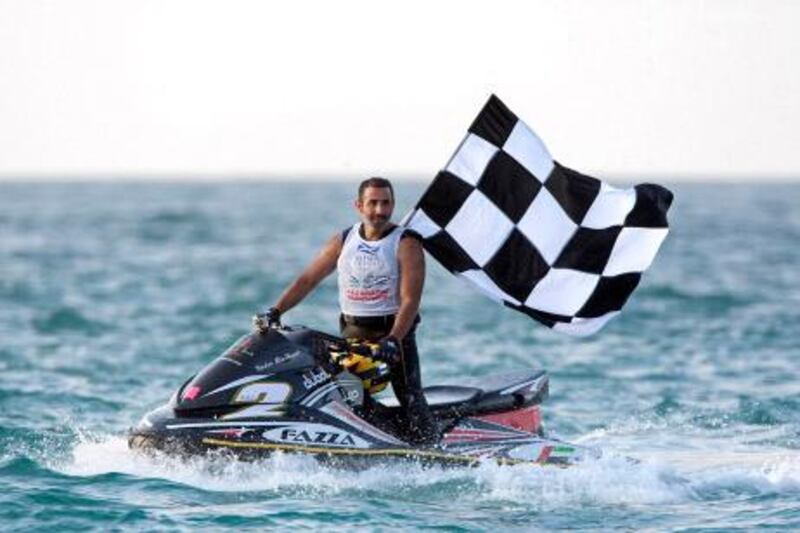To most people, there are no shades of grey when it comes to doping. "I'm a proponent of: first offence, lifetime ban," Jay Benner, the UAE swimming coach, said when asked for his view on doping in sport this week.
Which is clearly unambiguous. And, of course, more than once is just ridiculous. Take Justin Gatlin, who failed twice, cooked up some lame excuses each time, and was still able to return to run to a medal in last year's 100m final at London 2012. It makes a mockery of sport.
Sometimes people come out with ludicrous excuses, too. Like EPO-tainted rainwater, contaminated steak or even a CIA conspiracy. All have been tried. Few have been believed.
But it not always so black and white that someone who has failed a drug test has been seeking to cheat. Twice is proof, but once can still be an accident.
Having had such a stellar career in powerboating, Nadir bin Hendi had much to lose by way of his failed test.
Not in financial or physical terms, but in terms of the respect afforded to him by those involved in his sport, as well as maintaining the credibility of his achievements.
Now, having spent a vast amount of money in an ultimately futile attempt to clear his name, he says he feels like a criminal.
"It was the cheaters who brought sport to this level," Benner said as a general comment.
"If you make a mistake, regardless of it is accidental or with intent, you fall under the same heading.
"You only have to test positive once. Everything you did prior to that may have been legitimate, but all of a sudden there is doubt."
Follow us
[ @SprtNationalUAE ]






